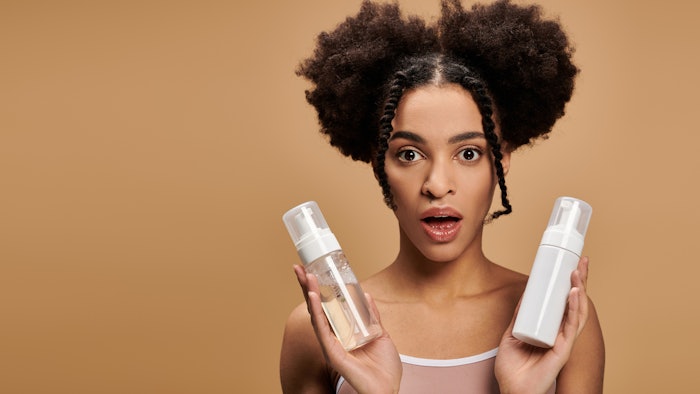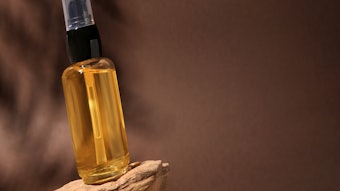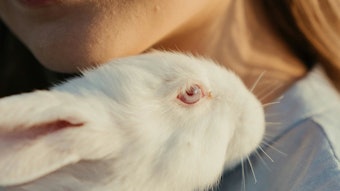
Recent cosmetic ingredient-related safety concerns and recalls have made the headlines. These include: Drunk Elephant's recall over an ingredient "mix-up" (keep reading for the details); ECHA's findings that of some ~4,500 cosmetics reviewed, 6% contained banned ingredients; and Dynarex's extended baby powder recall over potential asbestos contamination. Following is a roundup.
Log in to view the full article
Recent cosmetic ingredient-related safety concerns and recalls have made the headlines. These include: Drunk Elephant's recall over an ingredient "mix-up" (keep reading for the details); ECHA's findings that of some ~4,500 cosmetics reviewed, 6% contained banned ingredients; and Dynarex's extended baby powder recall over potential asbestos contamination. Following is a roundup.
Drunk Elephant Recalls 3 Products
In an alert posted to its website, beauty brand Drunk Elephant voluntarily recalled "a small number of lots" of three products:
- Beste No. 9 Jelly Cleanser (150 mL, lots 4135HG and 4144HG; 60 mL, lot 4150HG; and 15 mL, lot 4156HG)
- Protini Polypeptide Cream (50 mL, lots 4163BG, 4165SG and 4165TG) and
- Lala Retro Whipped Cream, including sample packets included in O-Bloos Rosi Drops cartons (50 mL, lots 4177QG, 4178PG, 4190QG, 4191QG and 4205QG; 15 mL, lot 4182QG; 5 mL, lot 4167PG; and sample packet lots 4199AC-A, 4204AC and 4205AC).
Per the company post, this is "due to an isolated ingredient mix-up between preservatives and surfactants during production," that compromised the formulas of certain lots of these products. See below for the ingredient error details.
"We ask customers who have affected products to stop using them. Please note, the O-Bloos Rosi Drops product itself is not affected," the post states, adding: "The quality of our products and the satisfaction of our customers are our top priorities. We sincerely apologize for any inconvenience this may cause."
Best No. 9 Jelly Cleanser - Additional Preservative
According to Drunk Elephant's post, "Affected lots of this product contain additional preservative ingredient Microkill COS (chlorphenesin, caprylyl glycol and phenoxyethanol) not listed on the product ingredient list. This ingredient is commonly used in cosmetics but may cause a temporary adverse skin reaction in those with a specific sensitivity to this ingredient."
Protini Polypeptide Cream - Additional Surfactant, No Preservative, Bacteria Growth
In terms of the polypeptide cream, the brand reports: "Affected lots of this product contain a surfactant Mirataine CBS (cocamidopropyl hydroxysultaine, sodium chloride, sodium hydroxide, and water) not listed on the product ingredient list. This ingredient is commonly used in cosmetics but may cause a temporary adverse skin reaction in those with a specific sensitivity to this ingredient."
In addition, the brand noted this product contains no preservative, which could allow microbial growth. "Some lots of affected batches were found to contain bacteria most closely related to the genera Klebsiella and Enterobacter. These are ubiquitous in nature being commonly found in water, food and on the skin and in the bodies of healthy individuals. Some species are opportunistic pathogens, meaning when it is present, there are rare instances where skin infections may occur. These are most often associated with immunocompromised persons and/or those with compromised skin," the website states.
Lala Retro Whipped Cream - Additional Surfactant, No Preservative, Yeast Contaminant
Finally, Drunk Elephant points to affected lots of this product containing the surfactant Mirataine CBS (cocamidopropyl hydroxysultaine, sodium chloride, sodium hydroxide and water) that is not listed on the product ingredient list. "This ingredient is commonly used in cosmetics but may cause a temporary adverse skin reaction in those with a specific sensitivity to this ingredient."
Similarly to the Protini product, the Lala Retro Whipped Cream also contains no preservative, which makes it susceptible to microbial growth. "Affected lots were found to contain yeast, some of which was found to be Candida parapsilosis," the brand stated. "Use of the contaminated product could result in an increased risk of infection. Candida parapsilosis is a yeast that lives on the human body and skin without harm. It is an opportunistic pathogen, meaning when it is present, there are rare instances where skin infections may occur. These are most often associated with immunocompromised persons and/or those with compromised skin."
In this author's opinion, while these recalls could impact the company's reputation, the two products lacking preservatives and demonstrating microbial growth might be used to teach preservative "nay-sayers" about the critical role these ingredients serve in products.
ECHA Finds Banned Ingredients in 6% of Cosmetic Products Surveyed
The European Chemicals Agency (ECHA) reported that in a pilot enforcement project, its Enforcement Forum of authorities in 13 European Economic Area countries inspected nearly 4,500 cosmetic product labels for specific banned ingredients. These include:
- perfluorooctanoic acid (PFOA),
- long chain perfluorocarboxylic acids (PFCAs) and related substances, and
- cyclic siloxanes D4 and D5.
The authorities found that 285 of the products (~6%) contained these banned ingredients, per the label review. The enforcement authorities have taken measures to remove the non-compliant products from the market, initially by contacting the suppliers for further action.
Dynarex Extends Baby Powder Recall Over Possible Asbestos
Finally, at the end of October 2024, Dynarex Corp. extended its recall from late September to include 1,020 additional cases of Dynacare Baby Powder. The recall was initiated due to concerns over possible asbestos contamination.
The company notes, "Asbestos is a naturally occurring mineral that is often found near talc [but it] is a known carcinogen and its health risks are well-documented. If talc mining sites are not carefully chosen or if proper steps are not taken to adequately purify the talc ore, it may contain asbestos."
The recall specifically includes:
- 373 cases of item number 4875, Dynacare Baby Powder, 14 oz. and
- 647 cases of item number 4874, Dynacare Baby Powder, 4 oz.
Specific batch numbers and manufacturing dates are outlined in the company recall. Both the 4875 and 4874 baby powder products are packaged in plastic bottles, 24 bottles to a case for the 14 oz. and 48 to a case for the 4 oz., with lot/batch numbers located on the bottom of the bottle and on each case.
Per the company, there have been no illnesses or adverse events reported to date. The recall was the result of a routine sampling program by the FDA, which revealed the finished products contained asbestos. Upon further investigation, Dynarex Corp. identified additional lots of products that may contain asbestos, as they used the same bulk talc material. The company reports it has ceased the distribution of the product as its investigation proceeds in order to determine what caused the talc contamination.










